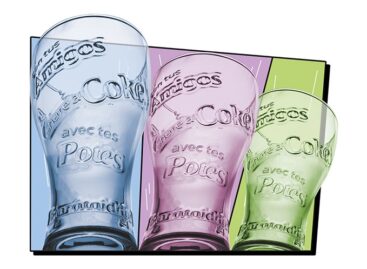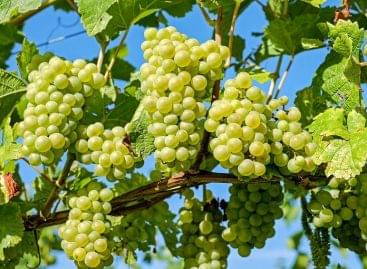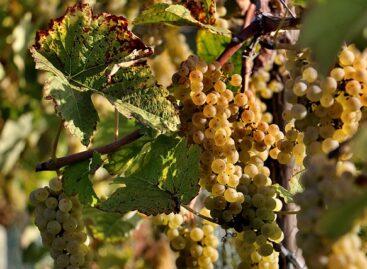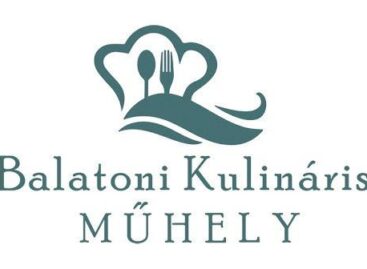Magazine: ”Wooden” fork, spoon and plate
Eco-friendly cutlery, plates, cups and packaging materials form an integral part of the positive trends in gastronomy.

Gábor Győrvári
managing director
Indepack
Gábor Győrvári, managing director of Indepack told our magazine that early this year they did a 7,000-respondent questionnaire survey, which revealed that 18 percent of hospitality units use eco-friendly cutlery, plates and cups only – 6 percent more than in the previous year. Data by Indepack indicate that sales of plastic products are slowly reducing – at a 5-percet rate – against paper products. The planned single-use plastics ban is likely to transform the market of packaging materials a little, but not all plastics will disappear for good, as some things can’t be substituted or the alternative solution is either too expensive or there isn’t enough raw material available for making it.

Zsuzsa Keve
founder-co-owner
Ecocatering
Zsuzsa Keve, founder and co-owner of Ecocatering Kft. informed that green cutlery, plates and cups are more and more frequent in the market. The ban of single-use plastics from next year will speed up this process even more. Most people don’t really know yet why plant-based cutlery and plates are useful, and even some of those who are already using them don’t have a clue what to do with these biodegradable items after use.

András Sánta
sales
manager
Gastron
According to András Sánta, sales manager of Gastron in Hungary, there was a dynamic growth in the eco-friendly packaging material segment in the last two years. The company sells eco-friendly, multiple-use plastic and single-use plastic packaging materials – in about 1/3 proportion each, but the share of the latter is decreasing. They offer a sustainable alternative to each plastic packaging solution and they aren’t very expensive, for instance Gastron has created the Box Again gastronomy packaging line to lower the prices in the segment.
Mr Győrvári explained that all of the plant-based products can be logoed just like plastic cutlery, plates and cups. Eco-friendly items are typically made of paper, some are sugar cane based and PLA/CPLA materials can perfectly substitute plastic – they are made of corn starch. They have negative characteristics, too: PLA cups soften in the sun and it is a bit difficult to popularise products made of this material, because they actually look like they were made of plastic. Another problem is the recycling of cutlery, plates and cups with food traces on them, and this is true for eco-friendly items as well!
The world’s thinnest PLA layer
Organicpack introduced its eco-friendly biodegradable packaging materials and food service products made of paper and a very thin layer of corn starch at the Future Store stand of the Sirha Budapest trade show. The paper is coated with the world’s thinnest PLA layer to make 40-60g water-, oil- and grease-resistant material. This innovation is a real breakthrough in the domain of fresh food and HoReCa product packaging.
Ms Keve revealed that they market mostly plant-based products, made of corn, sugar cane, wheat straw and pulp. From these only the ones made of sugar cane can’t be logoed. There is plant-based ink available too, which contains no chemicals therefore the items with print remain compostable. Mr Sánta’s company prefers paper products because they degrade quickly, are compostable and can be reused as paper. Each product in the Box Again range can be coloured and logoed. It must be mentioned that there are lots of fake products as well.
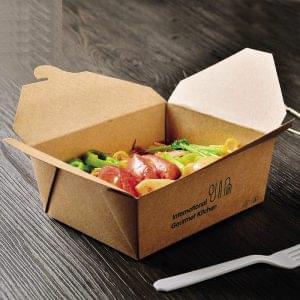
Often paper cups or food boxes are coated with plastic, or boxes made of starch or cellulose feature plastic (PP, PS) reinforcement. Biodegradable plastic – in spite of its catchy name – doesn’t degrade, it only falls into pieces due to certain environmental impacts.
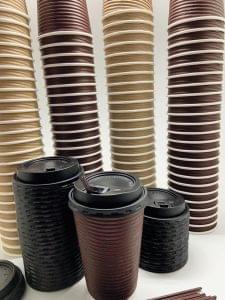
//
Related news
In several countries around the world, there will be Hungarian inscriptions on McDonald’s cola glasses
Starting in July, McDonald’s restaurants in several countries around the…
Read more >Nébih: A grape disease called golden yellows has also appeared in the Villány region
The grapevine disease known as golden yellows has also appeared…
Read more >Grapevine golden yellow disease has also appeared in the Villány region – Nébih calls for increased protection
The Grapevine flavescence dorée (FD) pathogen, which causes grape golden…
Read more >Related news
A new level of gastronomy at Lake Balaton
The hospitality industry at Lake Balaton and vocational training are…
Read more >The SZÉP card remains stable – even if not at Lake Balaton
Although its popularity has decreased slightly, the SZÉP card is…
Read more >
